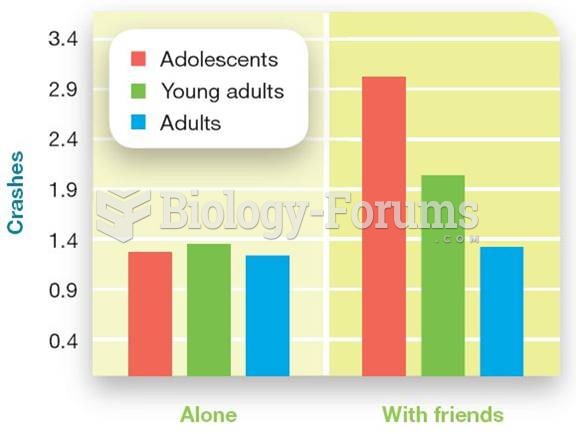|
|
|
The average older adult in the United States takes five prescription drugs per day. Half of these drugs contain a sedative. Alcohol should therefore be avoided by most senior citizens because of the dangerous interactions between alcohol and sedatives.
According to animal studies, the typical American diet is damaging to the liver and may result in allergies, low energy, digestive problems, and a lack of ability to detoxify harmful substances.
Ether was used widely for surgeries but became less popular because of its flammability and its tendency to cause vomiting. In England, it was quickly replaced by chloroform, but this agent caused many deaths and lost popularity.
There used to be a metric calendar, as well as metric clocks. The metric calendar, or "French Republican Calendar" divided the year into 12 months, but each month was divided into three 10-day weeks. Each day had 10 decimal hours. Each hour had 100 decimal minutes. Due to lack of popularity, the metric clocks and calendars were ended in 1795, three years after they had been first marketed.
On average, someone in the United States has a stroke about every 40 seconds. This is about 795,000 people per year.
 Erythroblastosis fetalis. (a) The condition occurs with an RH+ father and RH– mother. (b) First preg
Erythroblastosis fetalis. (a) The condition occurs with an RH+ father and RH– mother. (b) First preg
 Compared to a chimpanzee, the human newborn has relatively little room to spare as it passes through
Compared to a chimpanzee, the human newborn has relatively little room to spare as it passes through





